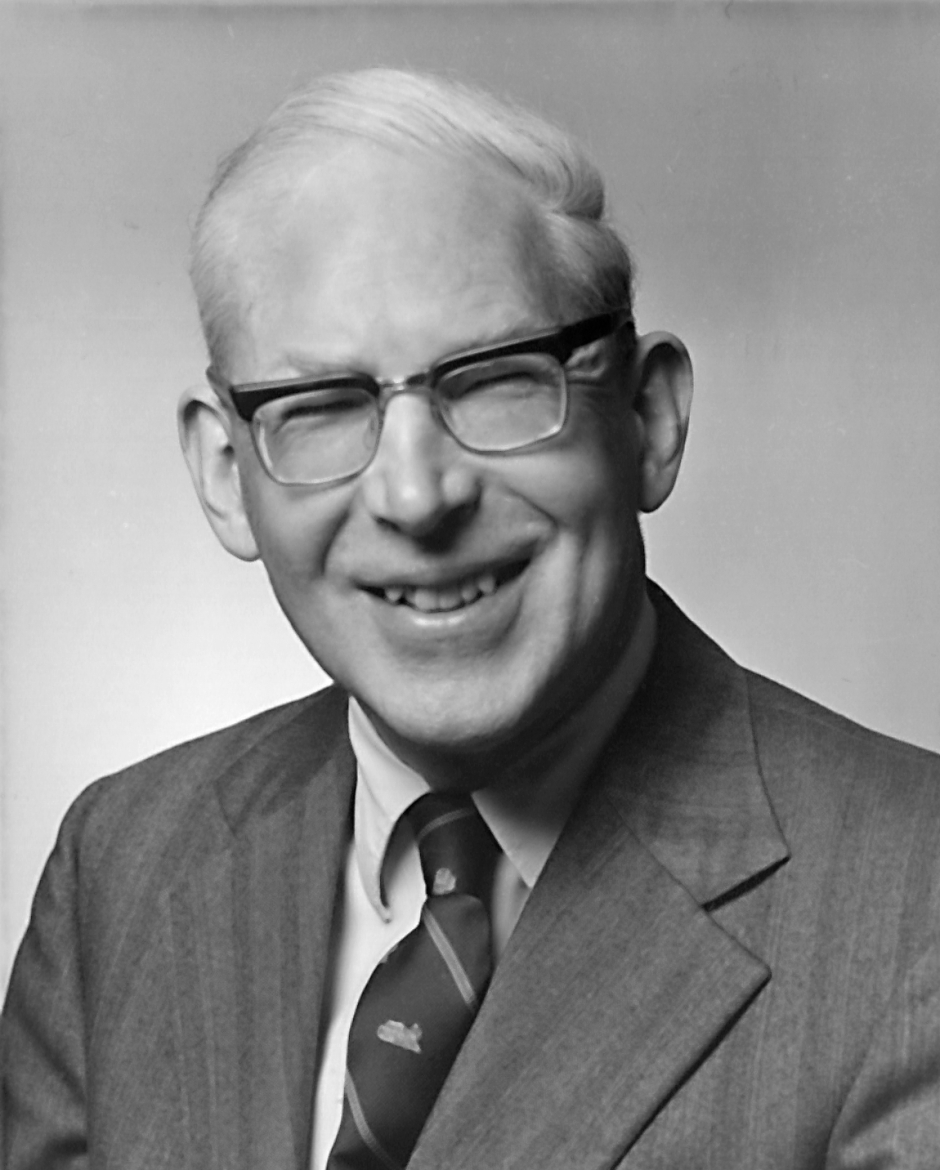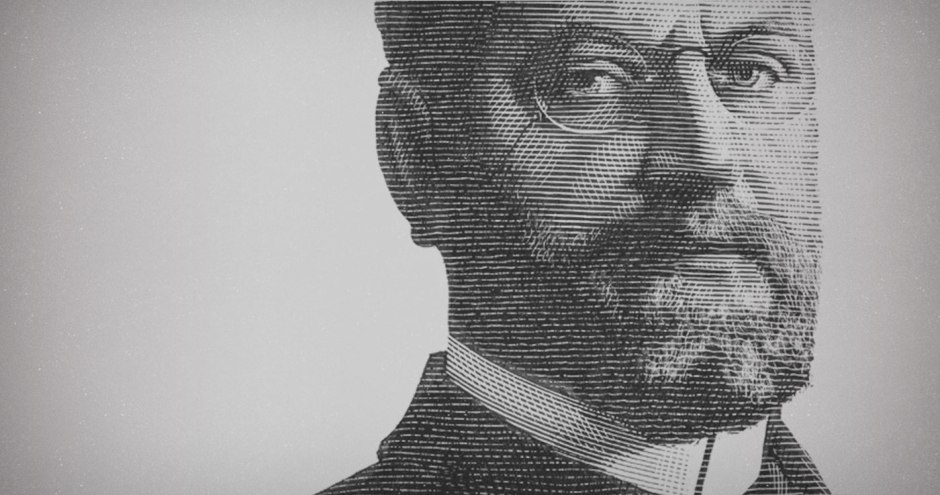(The Fall 2022 issue is in production.)
SUPPOSE A HISTORY PROFESSOR at an evangelical liberal arts college were teaching a course on American church history. His course did not follow the world religions approach but instead covered the religious traditions most numerous and most influential in America (though those are not synonymous) and so slanted the course to Protestants, Catholics and Jews. For the final exam the professor asked students to describe the teaching and practice of the average observant Catholic before Vatican II. If a student answered the question by ignoring Roman Catholic worship (the Mass), customs (fish on Fridays) , institutions (parochial schools), and teaching on justification, but answered instead with a description of an Irish immigrant in Boston who bucked the repressive pedagogy of local nuns, complained about never understanding the Mass, then went to Boston University, joined InterVarsity, attended Park Street Church, and read his Protestant Bible daily during his “quiet time,” should the professor give the student a passing grade? Such an answer would not be surprising given the historic anti-Catholic bias among Anglo-American Protestants. But wouldn’t the professor be delinquent in his duties as a professor of history to approve such an answer? In other words, is it possible for a Protestant to hold that a Catholic is “good” even if he believes his practices idolatrous?
LET’S TAKE ANOTHER EXAMPLE. This one from real life. J.I. Packer was one of the original Protestant signers of “Evangelicals and Catholics Together,” the first statement (1994) that called for a joint mission of Roman Catholics and evangelical Protestants in a limited number of endeavors. In an article he wrote explaining his decision (Christianity Today, Dec. 12, 1994), Packer applied the very language of “good Catholic” to those with whom Protestants ought to cooperate. Now Packer does not spell out exactly what such a good Catholic looks like. But the reasons he gives for not being able to become a Roman Catholic are helpful. For instance, Rome has a “flawed” understanding of the church, its sacramental theology “cuts across” the Pauline doctrine of justification by faith, the “Mary cult,” the doctrine of purgatory, and the “disbursing” of indulgences all “damp down” biblical teaching about assurance of salvation. What is more, papal claims to infallibility make the “self-correction” of the church impossible. So the communion of Rome is still “unacceptable” to Packer. But the Catholics who are willing to sign a declaration with Packer, despite his reservations and objections, are “good” Catholics. These Catholics most likely are ones who do not observe the faith in ways that Packer deems flawed or, at least, are not strict about them. Ironically, then, Packer’s assessment of Catholicism should fail to earn an A-grade on an undergraduate American church history final exam but is supposed to be persuasive to evangelical Protestants and Roman Catholics as the first step in ecumenicity.
WHY DOESN’T SUCH AN understanding of Catholicism earn the strong rebukes of condescension and paternalism? Isn’t Packer saying, in effect, that a good Catholic is one who has given up distinctively Catholic teachings and practice? What is more, why isn’t Packer criticized for harboring the kind of anti-Catholic sentiments that used to inform America’s progressive reformers who desired the assimilation of all immigrants to the United States into WASP culture? Liberal Protestants have a long history of including Roman Catholics at their gatherings and institutions who resemble themselves, that is, believers who have given up the more particular aspects of their tradition in order to fit in to American Protestant norms. That kind of treatment used to be called “illiberal” by Roman Catholics, such as when John Gilmary Shea in the 1880s accused the Puritan tradition of being “narrow-minded, tyrannical, and intolerant” of those who “refused to submit to their ruling.” But now, thanks to the wonders of modern ecumenism, Catholics who are not concerned about Rome’s historic teachings and practice are considered “good.”
THE POINT HERE IS NOT SO much the problems of recent Catholic and evangelical statements (though we do dissent from those affirmations). Rather our concern is with the understanding of religious traditions and their truth claims that undergirds not simply such statements as “Evangelicals and Catholics Together” but also Bible-only evangelicalism, New Life Presbyterianism, and proponents of “mere Christianity.” Underneath all of these expressions of Christian faith is, it seems to us, is the Enlightenment’s hostility to tradition, history, and particularity.
This an especially important concern to the editors of the NTJ because we have been accused of narrowness, rigidity, and sectarianism in our effort to defend not simply the theological truths of the Reformed creeds and confessions (specifically the Westminster Standards) but also the Reformed practices articulated in our creedal statements. In other words, from Packer’s perspective, or that of the evangelical undergraduate, we here at the NTJ are “bad” Presbyterians because we are unwilling to let go of such practices as Reformed liturgy (it does exist — just see Evelyn Underhill’s discussion in Worship [1937]), the sanctification of the Lord’s Day, Reformed sacramental theology, Presbyterian polity, and the avoidance of the liturgical calendar. We feel like ethnic Americans who are being forced to assimilate to the demands of a melting-pot Christianity. If we retain our distinctive ways we will be un-American or, worse, Amish.
ON THE ONE HAND, OUR CLAIMS are very modest and have to do with the simple methods used by historians (when not under the influence of modern literary theory that turns the meaning of words into jello). Presbyterianism may be historically defined as arising at a particular time and standing for certain convictions (predestination) and practices (infant baptism). Like it or not, the first proponents of any group, whether religious, political, or educational, set the standards for all who will follow in their name. So, if a later group bearing the name Presbyterian no longer believes in predestination and no longer baptizes their infants, do we still call them Presbyterian, or might we conclude that something akin to denial or stupidity is underway? The same goes for Agrarians or Unitarians. If someone claims to be an Agrarian and yet promotes the Internet and invests heavily in Texaco, calling into question his claim would not be irresponsible. Or if you find a Unitarian who believes Jesus Christ is the second person of the Trinity we might have some reasonable justification for concluding this person has departed from the teaching of William Ellery Channing, no matter how much we might be heartened by the expression of orthodox belief. In other words, tradition in a historical sense matters for Protestants as much as it does for Catholics. We may not believe in a magisterium but we do believe that Protestants may not rewrite the past.
ON THE OTHER HAND, WE WANT to make the immodest claim that the doctrine of sola scriptura is dangerous and not a separate doctrine in the Reformed tradition. By this we do not mean that we deny what the Westminster Confession says (and what was the formal principle of the Reformation) that “the Supreme Judge, by which all controversies of religion are to be determined” is “the Holy Spirit speaking in Scripture.” Our problem is with those who isolate the doctrine of sola scriptura from all other doctrines, as if the Bible exists without any interpretation, or apart from all confessional or creedal statements. In other words, we deny the biblicism that often masquerades under the banner of “the Bible only.” Technically speaking, which is the way the proof-text-approach to the Bible usually runs, “the Bible only” will not give us the Bible only since Scripture itself does not list its own table of contents. This means that even sola scriptura requires some human effort and interpretation. That is why Zacharis Ursinus wanted the Heidelberg Catechism bound at the front of Bibles published for the laity, and why the Geneva Bible came with notes (not unlike the NIV Bible for Women). Proponents of “the Bible only” want to protect God’s word from human hands, and so want to avoid going through any human tradition before arriving at the pure teaching of Scripture. But such a desire for a direct communication from God, which “the Bible only” appears to give, will not settle what the Bible only means. As George Marsden remarked several years ago, the doctrine of inerrancy might preserve the authority of the Bible but it could not even settle the question of the Trinity since, for example, some nineteenth-century Unitarians believed an inerrant Bible revealed an Arian Christ.
CHRISTIAN HISTORY IS littered with Protestant groups who have pitted the Bible against man-made creeds. Pietism was arguably the first to do serious damage to the necessity of confessions for the health of the church. Pietists argued that the gospel had atrophied and died because the doctrinal precision advocated by scholastics extinguished real piety. They also believed that bickering over church polity had vitiated the body of Christ, and that ritualism and clericalism were stifling worship. “Back to the Bible” became the pietist slogan (and continues to be a reliable index to extant Pietists). As James Tunstead Burtchaell observes in a forthcoming book on Christian higher education in America, “by turning from the cumulative tradition of biblical commentaries, symbolic definitions and theological disputation, and by drawing upon Scripture as a basis for doctrine and morality, the adherents of reform did not successfully set aside the thoughts of man in favor of the thoughts of God” (as if such a Gnostic denial of creation is ever possible by creatures). Instead, Pietists “simply exchanged the agenda of the sages of the past for the agenda of the preachers of the present.” Untethered to the wisdom of the past, Pietism quickly degenerated – SURPRISE! – into rationalism, which is simply another tradition, but one which interprets the Bible according to the lights of what is reasonable and responsible, rather than one cultivated and sustained by an interpretive community (i.e. the church). According to Burtchaell, “Pietism was surely not an early, soft variant of the heathen gentility of the later rationalism which followed close upon it, but there was a kinship between them.” Pietism and rationalism both “deplored the confessional particularities of the churches, referring to them contemptuously as ‘sectarian.’”
Church history of full of the same pattern. The no-creed-but-the-Bible mentality that Nathan O. Hatch documents so well (Democratization of American Christianity) within two or three generations gave way to liberal Protestantism. Conservative Protestants are prone to think that liberal Protestants were wicked men who drank, danced, chewed and denied Christ and the Bible openly. But much like evangelicals, Protestant liberals were guardians of middle-class respectability and morality. What is more, they gained considerable leverage against their confessional rivals by trumpeting the slogans of “Back to Christ” and “Back to the Bible.” This genteel variety of primitivism (Pentecostalism was a less genteel form) not only freed liberal Protestants from the creeds to which they had subscribed but also gave room to maneuver in the wider world of modern science and learning. Gone was the Christ of Chalcedon and the imputation of Christ’s righteousness. In their place came the Christ who stood at the apex of evolutionary development and the righteousness secured by following Christ’s Golden Rule.
AMERICAN PRESBYTERIANS have been big suckers for Bible-onlyism because of their embrace of the Enlightenment. Unlike their counterparts in the Netherlands, American Calvinists developed no anti-revolutionary ideology. They not only endorsed Enlightenment politics when advocating the valuable principle of limited government. But in the euphoria of the American Revolution, a revolt inspired by the Enlightenment (of a the moderate Scottish sort), Presbyterian clergy also endorsed an Enlightenment view of history. According to the American Protestant reading of Christian history the Reformation was a forerunner to the Enlightenment; both Protestantism and science were responsible for dispelling ignorance, superstition, bigotry and intolerance and for advancing the cause of truth, reason, knowledge and progress. In this unfolding of western civilization, Catholicism, which was responsible for the “Dark Ages,” was the villain. For that reason, American Protestants had no trouble including a tepid version of their religion in public schools but objected vigorously to either parochial schools receiving tax funds or granting Catholics privileges in the common school. In The Soul of the American University George Marsden identifies this outlook as “the Whig Ideal.” Protestantism was synonymous with “the advances of civilization and the cause of freedom,” that is, freedom not only for civil liberty but also for scientific inquiry. In contrast, Catholicism “represented absolutism, suppression of individual development, and suppression of free inquiry.”
UP TO THE FUNDAMENTALIST controversy confessional Presbyterians perpetuated this Whig outlook. But thanks to contacts with Dutch Calvinists, who knew the downside of enlightened politics, and owing to the leaven of Cornelius Van Til’s apologetics, conservative Presbyterians and some evangelicals saw the incompatibility between the Enlightenment ideal of autonomous inquiry and the Christian notion of submission to revealed truth. It became much easier to admit that “nothing is neutral.” The lone natural scientist or scholar, many conceded, was just as prone to a prejudiced reading of the facts as any cleric, Roman Catholic or not.
STILL, THE ENLIGHTENMENT lives on. Van Til’s insights about presuppositions and the bias of the human heart have only penetrated so far into the American Presbyterian brain. Some Van Tillians continue to appeal to the doctrine of sola scriptura in Whig fashion and pit traditionalism (i.e. “rigid” and “sectarian” adherence to the Presbyterian creeds and directories for worship) against the Bible only. It is as if once the mysterious work of the Holy Spirit has regenerated the blind and prejudiced human heart the regenerated individual, in autonomous and rational fashion, can plumb the depths of the Bible and do so free from the prejudice and bigotry of strict subscription. So much for the contamination of the human soul that continues after conversion.
Even worse, so much for the naivete, blindness and pride of the Enlightenment’s faith in reason and the possibility of arriving at objective, global, cosmopolitan truths to which everyone in the world agrees once the right methods of inquiry have been adopted. Some Van Tillians make it seem that once the switch of regeneration is flicked on everyone who picks up the Bible will read it the same way. Which is another way of denying the history of the Christian church in all its variety and the claims of all those professing Christians throughout the ages who believe they are biblical. The Bible-only approach, in good Enlightenment fashion, presumes the possibility of escaping all the prejudice, bigotry and darkness of the past and arriving at an unprejudiced understanding of the Christian religion. In effect, nothing is neutral except for the Bible, which is an ironic twist considering how divisive the Bible is compared to the homogenous assessment given by some conservative Presbyterians to such human sciences crying out for Christian interpretation as history, chemistry and even politics. And without the aid of the past the regenerated individual may now sit down with his Bible alone (no notes, please) and figure out the two natures of Christ, the bondage of the will, the nature of the atonement, and the imputation of Adam’s sin, for starters.
OF COURSE, ONE PROBLEM WITH the anti-traditionalist outlook of “no creed but the Bible” is that it is itself an interpretive tradition. The desire to return to a pure gospel unadulterated by creeds or human authorities is about 300 years old and has demonstrated a remarkable consistency through the years. But because of Bible-only Christians’ hostility to tradition they can’t spot the one they follow. The result is an uncritical and unaware outline that functions as trump in any card-game of rival traditions. According to Bible-only logic, if it comes from man then it can’t come from God and so must be a tradition. Never mind that God sets up men with legitimate authority to rule over others, such as those found in the visible church. The Westminster Divines are just as fallible as the Pope and so must not be obeyed uncritically, an interesting and no doubt uncomfortable position for anyone who has subscribed to the Westminster Standards.
The other problem is that Bible-onlyism never delivers what it promises. It is supposed to provide an unprejudiced reading of the Bible that will unite all true believers on the essentials of the faith. Does it not seem a tad audacious and perhaps a bit prejudicial for some individuals, freed from the interpretive constraints of ecclesiastical accountability, to sit down and determine just what is essential in the Bible? Where would we find those essentials? In the Epistle to Jude or maybe one of the Synoptic Gospels? Isn’t this exactly what Marcion and Thomas Jefferson had in mind when they cut and pasted the Bible according to their understanding of what was essential and genuine? Aside from its audaciousness, the effort of Bible-only believers to arrive at a “mere” expression of the gospel nurtures its own form of rigidity, narrowness and intolerance. The inclusive center is never sufficiently broad to include Mormons and Unitarians, suggesting that some intolerance is worthwhile. Meanwhile, the Bible- only creed excludes those believers whom professors of history might describe as “good” Presbyterians, “good” Lutherans, “good” Anglicans, “good” Catholics, and, yes, “good” Amish. When liberal Protestants told fundamentalists that all Christians were one in the Lord, Walter Lippmann observed that the liberal approach was akin to telling fundamentalists, “smile and commit suicide.” Which only proves the rule that those who live by the ideals of tolerance and sensitivity are generally intolerant and insensitive. Or to borrow Richard John Neuhaus’ rule, when orthodoxy is optional, orthodoxy is soon proscribed.
The Bible never exists, then, in an “only” state. It must always be interpreted. At which point the interpretation of the “Bible only” needs to be held up against the Bible as interpreted by the various Christian communions. But the Bible as understood by those communions, we believe, will always be superior to the interpretive strategy of the Bible-only Christians because the former recognize the importance and necessity of the visible church while the latter places all authority and wisdom in the autonomous individual. Though liberal economic and political thought lauds the virtues of the individual, Christians who confess the doctrine of original sin should be wary of modernity’s handling of ancient texts. Christ gave to his people the church and her ministry for a reason, not simply to edify but also to restrain. The church is necessary for rightly understanding the Bible. Despite her divided state, she is an interpretive community that checks and balances the excesses of private interpretations (including Quiet Times). This may sound like a Roman Catholic sentiment. We would deny this. We still believe that churches err and have erred. And we believe that the Bible is the place to go to resolve religious controversies. Quoting the Shorter Catechism will not. But this does not mean that each generation has to start from scratch, as if the history of the church, her controversies, her various creeds and varying communions do not exist. Nor does it mean that the church as an interpretive community has no authority because it is human while the Bible is divine. As the Confession of Faith puts it, the “decrees and determinations” of the church should be received with “reverence and submission” not simply because they agree with the Bible but also because the “power” of the church is “an ordinance of God, appointed thereunto in his word” (31.ii).
IN THE END THE CHOICE IS not between the Bible and tradition. Rather it is between traditions accountable to the visible church or those of either individualistic (e.g. private) or parachurch origins. We can never escape tradition, the dogma of the Enlightenment to the contrary. So which will it be, the Bible interpreted self-consciously by communions shaped by the history of the Christian church, or the Bible as understood by collections of autonomous individuals being swept along by the flood of Enlightenment innocence? Which is better, an observant Catholic or a “Bible-only” Protestant? As much as we disagree with Rome and as rigidly Presbyterian as we are, we will take our chances with Packer’s “bad” Catholics any day. At least with them we can agree to disagree. But with creedless Protestants, whether evangelical or liberal, we will always be disagreeably forced to agree.










